News story
Leaders to the Future discuss approaches for advancing diversity in the disarmament field
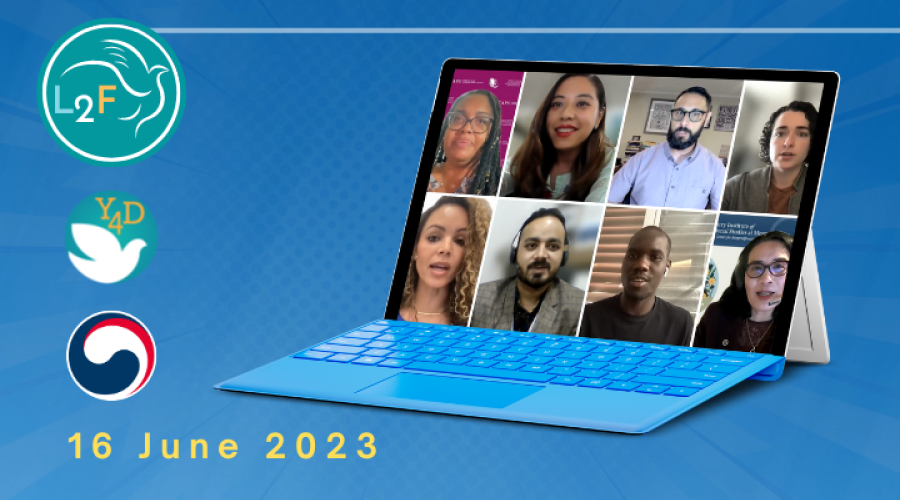
For the sixth session of the Leaders to the Future Series, a group of young leaders joined together online to learn about approaches to strengthen inclusion and diversity within the disarmament field. The workshop took place on Friday 16 June, in commemoration of the International Day for Countering Hate Speech on 18 June.
The annual International Day highlights how the impact of hate speech cuts across numerous UN areas of focus, from protecting human rights and preventing atrocities, to sustaining peace, achieving gender equality, and supporting children and youth.
In his message to commemorate the International Day, the UN Secretary-General noted the important role of educational initiatives, positive speech campaigns, research to understand and address root causes, and efforts to promote inclusion and equal rights as essential tools for countering hate speech.
Against this background, the Leaders to the Future heard from a distinguished line-up of speakers on their efforts to provide platforms for all stakeholders to participate and contribute to disarmament, non-proliferation, and arms control (D.N.A.) processes. The International Day also provided an opportunity to contextualize disarmament within the UN's wider peace and security efforts. Ms. Marykate Monaghan, the project lead of the Leaders to the Future Series, moderated the session.
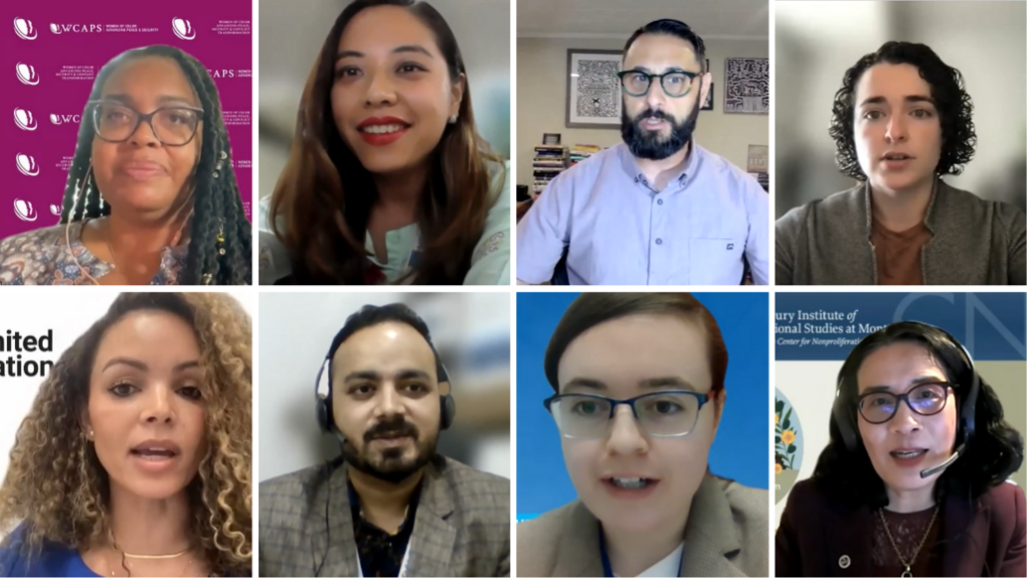
In opening remarks, Dr. Maleeka Glover, Interim Executive Director of Women of Color Advancing Peace, Security, and Conflict Transformation (WCAPS) highlighted the organization’s mission and activities to facilitate the meaningful and inclusive engagement of a diverse range of actors in disarmament, including the important role of young people. Dr. Glover also highlighted the impact of inclusive processes in creating effective, legitimate, and deliverable policies and programmes on the national and global level, contributing to efforts to build a better world for all.
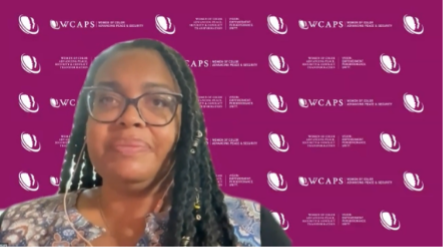
Ms. Natasha Carvalho-Malekane, Political Affairs Officer in the 1540 Support Unit of the United Nations Office for Disarmament Affairs (UNODA), shared an informative overview of the regional activities conducted to build ownership and leadership amongst a range of stakeholders to deliver non-proliferation efforts through the implementation of the United Nations Security Council resolution 1540. Adopted by the UN Security Council in 2004, resolution 1540 aims to prevent non-state actors from acquiring nuclear, biological, and chemical weapons, their means of delivery, and related materials. Ms. Carvalho-Malekane noted the intention to advance transformative, rather than performative, representation by identifying and focusing upon the different priorities of actors to create efficient policies.
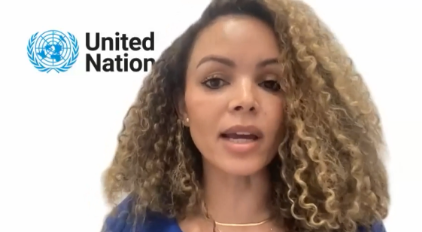
Dr. Vincent Intondi, Director of the Institute for Race, Justice, and Civic Engagement at Montgomery College in Takoma Park, Maryland, provided an overview of his research on the link between race and nuclear weapons, as well as highlighted the need to provide platforms for affected communities to share their narratives. Dr. Intondi also noted the importance of representation in building legitimate and effective policies, as well as inspiring diverse stakeholders to believe they have a valuable role to play.
Ms. Masako Toki, Senior Project Manager and Research Associate at the James Martin Center for Nonproliferation Studies at the Middlebury Institute in Monterey and coordinator of the Critical Issues Forum (CIF) highlighted the role of education as a bridge for cooperation and a way to foster a culture of peace. Ms. Toki highlighted the aim to engage both high school students and their educators to trigger a multiplier effect, engaging others within their local communities to inspire change.
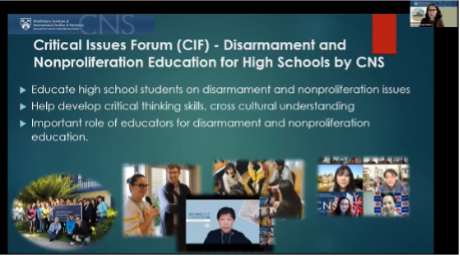
Ms. Lucia Madero Murillo shared more information on her role as an Early Career Youth PrepCom Regional Consultant for Latin American and the Caribbean with the Emerging Voices Network of British American Security Information Council (BASIC). As part of the process, Ms. Madero Murillo lead a series of consultations with young people active in the disarmament field from the region, gathering their insights and perspectives on the Treaty on the Non-Proliferation of Nuclear Weapons (NPT) review processes over the past four months. From her research, Ms. Madero Murillo stressed that youth do not act as a homogeneous group but contain multiple and varied viewpoints that enable them to provide valuable inputs from their regional experiences and approaches.
To conclude the presentations, Mr. Sabin Lamichhane and Ms. Monica Lama from UNESCO’s Country Office in Nepal, shared examples of the organization’s recent initiatives to engage youth in their activities on peace and security. Ms. Monica Lama, Program Associate and Focal Point for the Global Citizenship Education of the education program at UNESCO Nepal, shared upcoming events for young people to provide their perspectives and insights, including the Sub-Regional Launch of UNESCO Policy Guide on Addressing Hate Speech through Education. Mr. Sabin Lamichhane highlighted the importance of interdisciplinary approaches in advancing disarmament across various areas through forging dialogue and connection between communities.
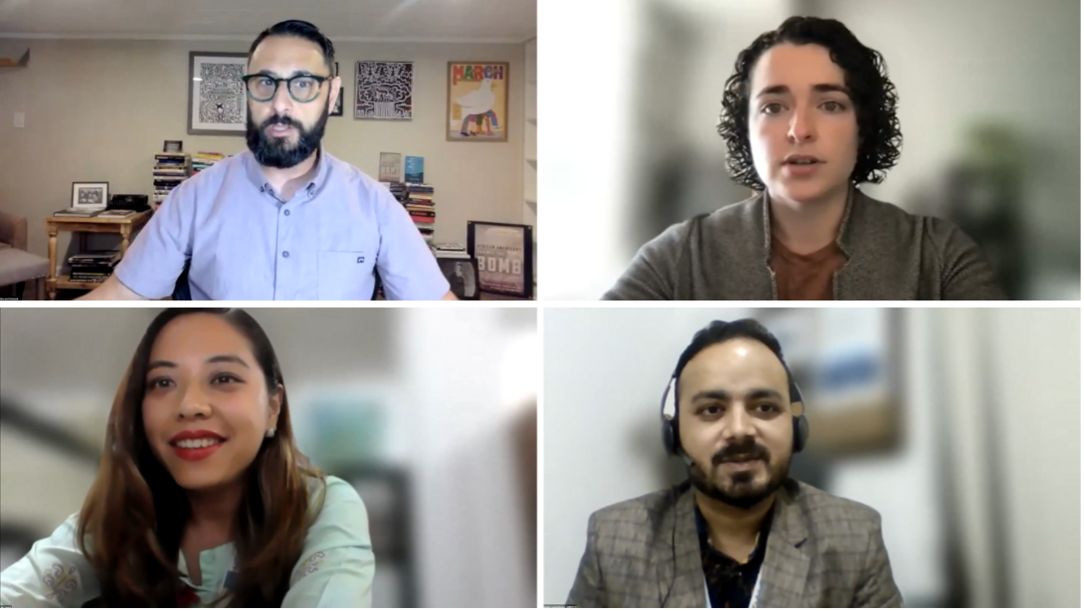
After the presentations, the Leaders to the Future participated in an interactive question-and-answer session on the barriers faced by young people and other actors when engaging in disarmament efforts, ways to break down silos within the disarmament field to enable the full and meaningful participation of all actors, and avenues for the sustained engagement of diverse stakeholders.

To conclude, the Leaders to the Future shared their thoughts on the current state of diversity present within the disarmament field, their personal experiences participating in multilateral disarmament efforts, the impact of efforts to encourage further diversity and their reflections from participating in exchanges with youth located around the world. The findings will be published in a non-paper on the #Youth4Disarmament website, which aims to strengthen efforts for building a safer, more peaceful world for all.